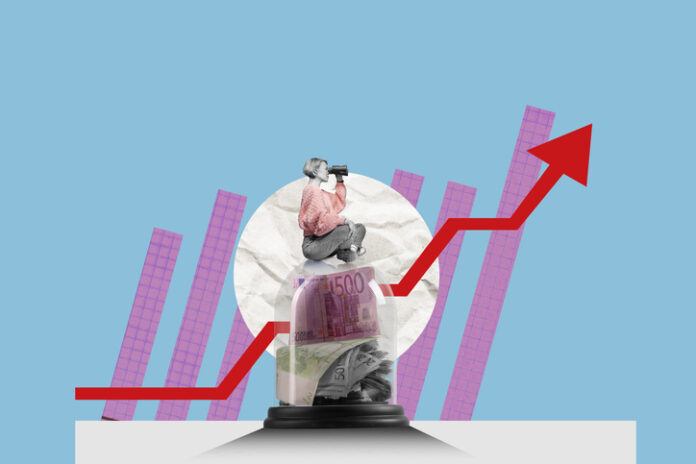By Tim Bovy
In what might be considered the seminal definition of neoliberalism, Milton Friedman absolves businesses of needing a “social conscience”. Nor do they need to promote a “‘desirable’ social end.” As I noted in Part 1 of my article, Neoliberalism buried society so far beneath the market that Margaret Thatcher declared the former non-existent, claiming that “there’s no such thing as society.”
By subordinating society to the market and negating the value of social interdependence, neoliberalism has fertilized the growth of climate change and inequality, while diminishing the importance of human rights, social justice, and nature. Recognizing that the Friedmanite economic model is no longer sustainable, Klaus Schwab, founder and chairman of the World Economic Forum (WEF), has proposed completely recasting corporations as “trustees of society, [which] is clearly the best response to today’s social and environmental challenges.” Business leaders,” he continues, “can move beyond their legal obligations and uphold their duty to society.”
We have seen this type of pendulum swing before, at least in politics. A pattern has emerged in which periods during which governments have allowed, indeed, through their economic policies, encouraged markets to run rampant have been followed by periods during which governments have created policies to reinstate society’s primacy. The Progressive Era subdued the market supremacy of the Gilded Age; The New Deal counterbalanced the market chaos of the Great Depression; Bidenomics is seeking to correct the terrible social and environmental consequences of yet another round of neoliberalism, extending from Reagan through to Obama and Trump, President Biden himself stating that “Milton Friedman isn’t running the show anymore.”
The limitation in all of these political correctives, however noble, is that they are local. If we are going to move towards an economic model that serves the needs of the 21st Century by offsetting the social and environmental damage that neoliberalism has caused, we need to reimagine capitalism in a way that benefits everyone, including nature.
The WEF is developing a framework within which to achieve this by replacing shareholder with stakeholder capitalism. In shareholder capitalism, “the responsibility of business is to increase its profits”; in stakeholder capitalism, “society’s goal is to increase the well-being of people and the planet.” Shareholder capitalism emphasizes “short-term profit maximization as the highest good”; stakeholder capitalism focuses upon “long-term value creation and ESG [Environmental, Social and Governance] measures.”
We are a long way from Milton Friedman’s belief that businesses do not need to promote “a ‘desirable’ social end.” With its dictum that “society’s goal is to increase the well-being of people and the planet” and its focus on ESG, the WEF could be one of the cornerstones of what I am calling the Civil Market Economy.
The Civil Market Economy – What it is not
First, I think it is important to understand what the Civil Market Economy is not. It is not the same as the Civil Economy, which has been described as “complementary…to the neoliberal market economy,” and as “minimizing government intervention.” The Civil Market Economy eschews neoliberalism and supports government intervention to ensure the enactment of policies that benefit the entire population, thus aligning it with the economic models of both the Progressive Era and FDR’s New Deal.
It also shares similarities with the social market economy, emphasizing “public acceptance and civic engagement as prerequisites for the success of the socio-economic model [and] social engagement for and with the people.” Where the civic market economy differs is that it realizes that modern governments rarely respond to the wishes of the people that they are meant to represent.
Most people, for example, grasp the significance and impact of climate change,“That voices from the climate movement,” notes Rebecca Solnit,“have finally succeeded in making the vast majority understand it, and many care passionately about it, might be the biggest single victory the movement will have.” In Scotland alone, “A poll by YouGov, commissioned for the [Save Our Wild Isles] campaign, found four out of five Scots (81%) want to see all political parties come together to produce an action plan to protect nature, with 79% backing harsher penalties for businesses whose actions contribute to the decline in nature. Almost three-quarters of Scots (71%) said they are worried about the state of nature in the UK.”
But governments, particularly those that are neoliberal, tell a different story. John Maynard Keynes was correct when he said: “We destroy the beauty of the countryside because the unappropriated splendours of nature have no economic value.” Consequently, we are faced with a large gap between the people, who desire a non-partisan approach to climate change, and their elected representatives who continually fail them. The civil market economy recognizes this disjunction. Governments predominantly look inward toward their own interests, while the people they claim to represent want them to look outwards toward the needs of society.
The recent King’s Speech, for instance, says Lorna Slator, “represents business as usual for the UK government. There may be a new Labour prime minister, but Keir Starmer is clearly planning to continue with Tory economic and social policy which prioritizes wealth and growth over the wellbeing of people and planet. [He] could have chosen to immediately lift hundreds of thousands of children and their families out of poverty by scrapping the two child benefit cap, but instead he’s relying on the myth of trickle down economics to put food on the table and pay people’s energy bills.” Neoliberalism and discredited Reaganomics: not exactly what British people were hoping for when they voted for a change in government.
The Civil Market Economy – What it could be
First and foremost, we need to create democracy at the bottom. Democracy at the top has proved illusory. Its history, said Walt Whitman, “remains unwritten” because it “has yet to be enacted.” Quite simply, we have never got it right. A part of the problem is that democracy is often a misnomer. In 2014, for example, two respected scholars claimed that the US political system is more aptly described as “economic élite domination,” which, as the Nobel Laureate economist Paul Krugman observed, enables the elite “to buy the political system…to serve their
Interests.” The Koch brothers viewed elected politicians as mere “actors playing out a script” whose “themes and words” they supplied.” John O. McGinnis, a distinguished legal scholar, has remarked that “the solution to our fragmented democracy,” or, as I would argue, lack of democracy, “will more likely emerge bottom-up from civil and market society, rather than top-down through politics.”
In the civil market economy’s bottom-up democratic structure, the 81% of Scots, noted above, would not have to wait for government to create polices to manage climate change. Action would be mandated by civil society’s vote, leaving it to government to enact the required legislation.
With its policies for reducing economic inequality and promoting social justice, progressivism would replace neoliberalism, addressing the concerns that the Occupy Movement raised in 2011. The free market would still function, but not in the undisciplined manner that neoliberalism fostered. It would be tempered by civil society’s requirement that it operate for the benefit of the entire population. Government would exist to carry out the needs of civil society, defined in regular referendums, to promote the common good. It would, therefore, align with the obligations of business “to increase the well-being of people and the planet,” as defined by the World Economic Forum.
This alignment between business and the civil market economy, both working towards the common good, would redefine government as a conduit for enacting legislation important to society, in areas such as economic equality, climate change, human rights and social justice. The value of the WEF to the civil market economy is that it is egalitarian, serving as a complement to the civil market economy’s democracy at the bottom, which would also be egalitarian, putting an end to political parties and instead relying on a purely technocratic civil service.
The above is just the skeleton for developing an economic model to serve the needs of the 21st century, which I will explain more fully in my next article entitled: The Civil Market Economy.” Is it idealistic? Perhaps. In the end, mankind, through greed, recklessness, and an almost religious adherence to neoliberalism, might very well disappear from the planet. All in all, if you are a bee or a flower, that may not be such a bad thing.
Read the first part of the article here: Towards Developing an Economic Model to Serve the Needs of the 21st Century – Part 1.
About the Author
 Tim Bovy has over 35 years of experience in designing and implementing various types of information and risk management systems for major law firms such as Clifford Chance; and for international accountancy firms such as Deloitte. He has also developed solutions for organisations such as BT, Imperial Tobacco, Rio Tinto, the Kuwaiti government, The Royal Household, and the US House of Representatives. Tim is an elected member of The Royal Institute of International Affairs, Chatham House, an Independent Think Tank based in Central London, and holds a BA degree, magna cum laude, from the University of Notre Dame, and MA and C.Phil degrees from the University of California, Davis.
Tim Bovy has over 35 years of experience in designing and implementing various types of information and risk management systems for major law firms such as Clifford Chance; and for international accountancy firms such as Deloitte. He has also developed solutions for organisations such as BT, Imperial Tobacco, Rio Tinto, the Kuwaiti government, The Royal Household, and the US House of Representatives. Tim is an elected member of The Royal Institute of International Affairs, Chatham House, an Independent Think Tank based in Central London, and holds a BA degree, magna cum laude, from the University of Notre Dame, and MA and C.Phil degrees from the University of California, Davis.




































































